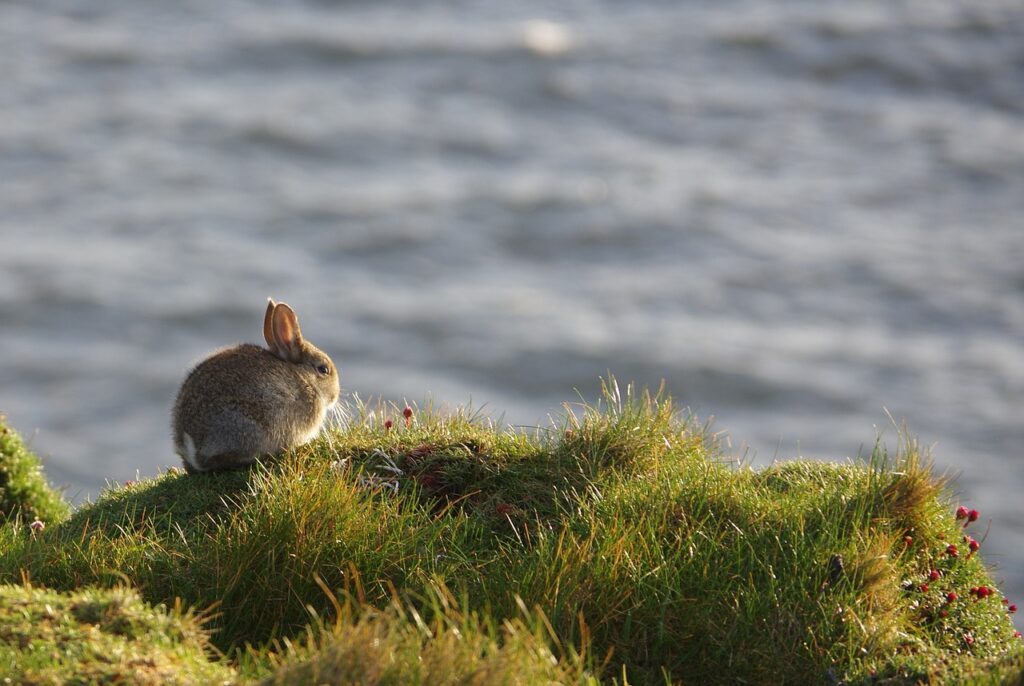Is Mint Safe for Rabbits? — Yes, It Is
Mint, the aromatic herb known for its refreshing flavor, can indeed be safely consumed by rabbits. In fact, it offers several potential benefits to our furry friends. Let’s delve into the reasons why you can confidently introduce mint into your rabbit’s diet.
Benefits of Feeding Mint to Rabbits
Mint leaves are not only a delightful addition to human cuisine but also provide a number of advantages to rabbits when consumed in moderation. Firstly, mint is an excellent source of vital nutrients such as vitamin A, vitamin C, and calcium. These nutrients contribute to the overall well-being of rabbits, supporting their immune system, vision, and bone health.
In addition, the natural oils found in mint leaves can aid in digestion and alleviate common digestive issues that rabbits may encounter. Mint may also serve as a natural breath freshener for rabbits, combating any potential unpleasant odors. Furthermore, the fresh aroma of mint can provide sensory enrichment and mental stimulation for your bunny, enhancing their overall quality of life.
How Often Should Rabbits Have Mint?
While mint is safe for rabbits to consume, it is important to offer it in moderation to maintain a balanced diet. Aim to include mint as an occasional treat rather than a staple food item. Introduce small portions of fresh mint leaves and monitor your rabbit’s response. If they show any signs of digestive discomfort or irregularities, it is advisable to consult with a veterinarian.
Points of Caution When Offering Mint to Rabbits
Although mint is generally safe for rabbits, there are a few considerations to keep in mind. Firstly, ensure that the mint leaves are thoroughly washed to remove any potential pesticides or contaminants. Organic or homegrown mint is preferable to minimize the risk of chemical exposure. Additionally, avoid feeding your rabbit mint plants that have been treated with any chemical insecticides or fertilizers.
Furthermore, as with any new food item, it is crucial to introduce mint gradually into your rabbit’s diet. Sudden dietary changes can disrupt the sensitive balance of their digestive system, leading to potential digestive upset. Observe your rabbit diligently for any adverse reactions and adjust the quantity of mint accordingly.
Other Pets That Can Safely Consume Mint
In addition to rabbits, several other pets can safely enjoy mint as part of their diet. Guinea pigs, for instance, can benefit from the nutritional value and aromatic properties of mint leaves. Similarly, pet rodents like hamsters and gerbils can nibble on mint for both its taste and potential dental benefits. Always ensure that the portion size is appropriate for each specific pet and consider consulting with a veterinarian to determine the ideal dietary choices.
Conclusion
To summarize, rabbits can indeed consume mint as a safe and nutritious addition to their diet. The various benefits offered by mint, including its nutritional value, potential digestive support, and sensory enrichment, make it a delightful treat for your furry friend. However, exercising caution by washing the leaves thoroughly and introducing mint gradually is essential. Remember, responsible feeding practices are key to maintaining the well-being of our beloved rabbits.





